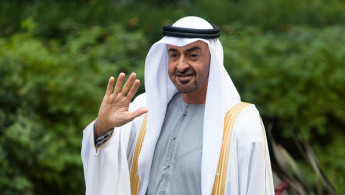Netanyahu denies UAE plans to suspend Israel defence deals over far-right government
Israel has denied claims that its Arab ally, the UAE, is planning to end some defence deals to protest the actions of far-right members of Prime Minister Benjamin Netanyahu's government.
Israeli broadcaster Channel 12 reported that UAE leader Mohammed bin Zayed (MbZ) had planned to freeze the purchase of some Israeli weapons after a recent call by Finance Minister Bezalel Smotrich to wipe out the Palestinian town of Huwara and the storming of the Al-Aqsa Mosque compound by National Security Minister Itamar Ben-Gvir.
"Until we can ascertain that Prime Minister Netanyahu has a government that he can control, we can't work together," MbZ reportedly said.
Netanyahu's office issued a strongly worded rejection of the report slamming it as "baseless" and said relations between the two countries remain in "fruitful diplomatic contact… including today".
Israel's foreign ministry also denied the reports, saying relations between the two countries are "strong and solid" with plans for the expansion of political and economic ties, including a free trade deal.
The UAE has planned to purchase huge amounts of weapons from Israel following a controversial 2020 normalisation agreement, which sparked outrage across the Arab world. Both countries are aligned on a number of regional issues, including opposition to Iran.
Emirati ambassadors have attempted outreach with far-right members of Israel's new government, including Smotrich and Ben-Gvir but relations have been tested over the erratic behaviour of these ministers.
A visit by Netanyahu to the UAE was cancelled for a fifth time in January, shortly after Ben-Gvir raided the Al-Aqsa compound.
Abu Dhabi also issued a condemnation of Smotrich's call for the destruction of Huwara, which was targeted but far-right settlers who torched Palestinian homes and vehicles.
The UAE has also sponsored a watered-down UN resolution condemning Israeli settlements yet military and intelligence ties between the two countries remain strong.





 Follow the Middle East's top stories in English at The New Arab on Google News
Follow the Middle East's top stories in English at The New Arab on Google News


